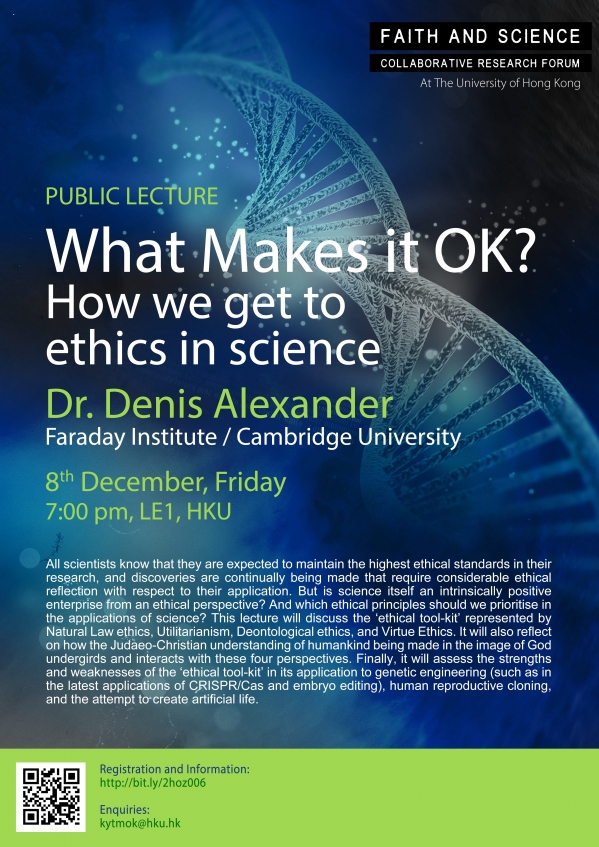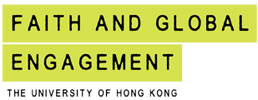![]() 
What Makes It OK? How we get to ethics in science
Dr. Denis Alexander (Faraday Institute / Cambridge)
8 December 2017 (Friday) | 7pm | HKU LE1 (Library Extension 1)
All scientists know that they are expected to maintain the highest ethical standards in their research, and discoveries are continually being made that require considerable ethical reflection with respect to their application. But is science itself an intrinsically positive enterprise from an ethical perspective? And which ethical principles should we prioritise in the applications of science? This lecture will discuss the ‘ethical tool-kit’ represented by natural law ethics, utilitarianism, deontological ethics, and virtue ethics. It will also reflect on how the Judaeo-Christian understanding of humankind being made in the image of God undergirds and interacts with these four perspectives. Finally, it will assess the strengths and weaknesses of the ‘ethical tool-kit’ in its application to genetic engineering (such as in the latest applications of CRISPR/Cas and embryo editing), human reproductive cloning, and the attempt to create artificial life.
Dr Denis Alexander is the Emeritus Director of The Faraday Institute for Science and Religion, St. Edmund’s College, Cambridge, where he is a Fellow. He was previously Chair of the Immunology Programme and Head of the Laboratory of Lymphocyte Signalling and Development at The Babraham Institute, Cambridge. He has many years’ experience of being known both as a scientist and as a Christian, and notably as an academic who will actively pursue fruitful engagement between science and religion.
|



